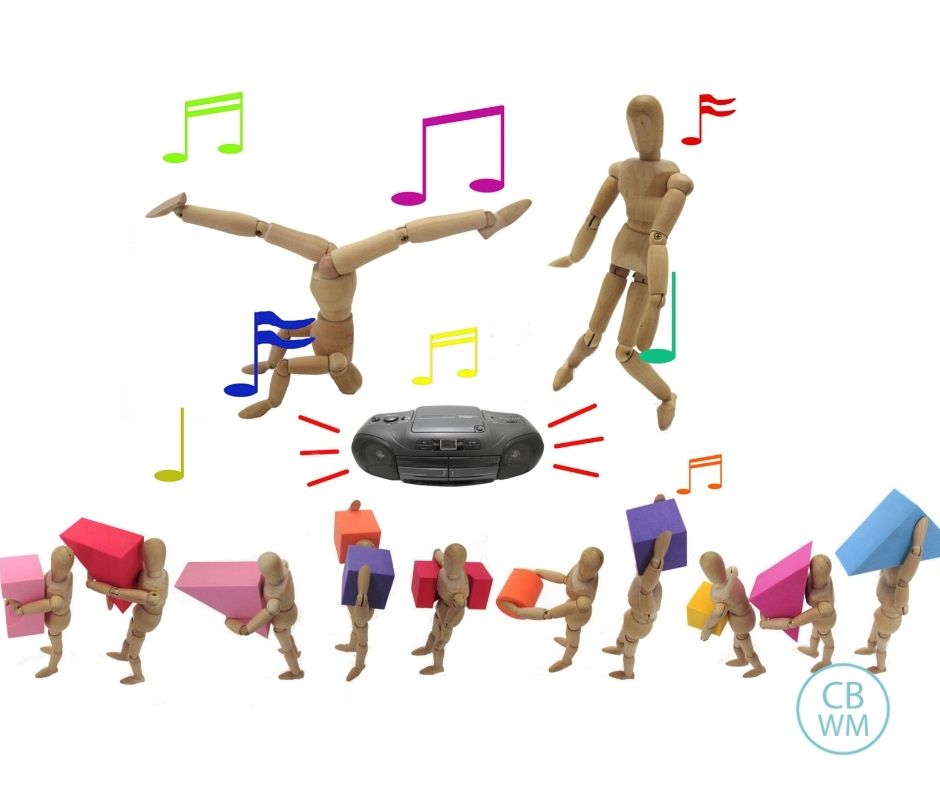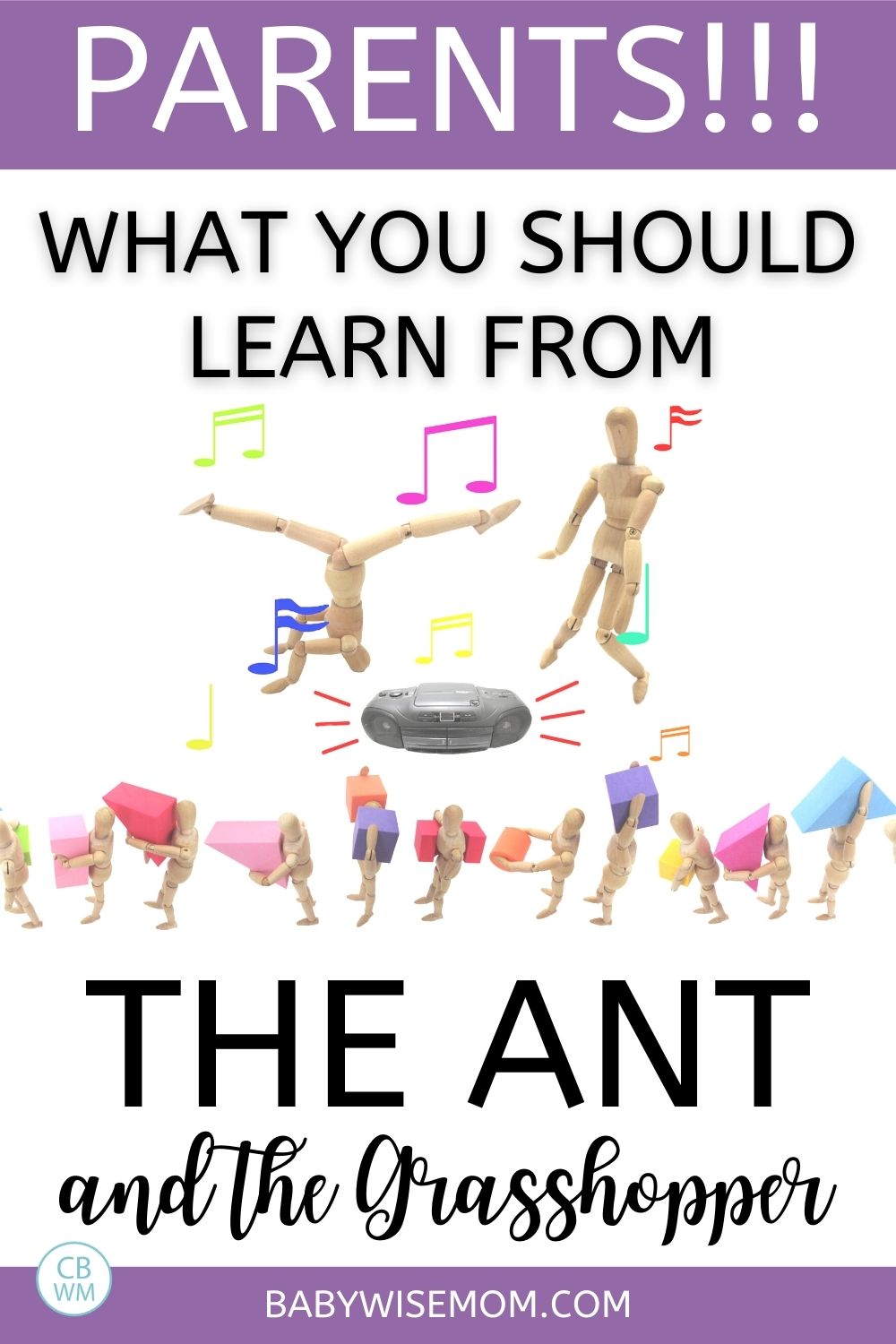Learn what the “Ant and the Grasshopper” fable teaches us about parenting and how we can prevent major issues with our teens by starting with our toddlers.

In Love and Logic Magic for Early Childhood (affiliate link)
Here is it is if you don’t remember (taken from DLTK’s website):
In a field one summer’s day a grasshopper was hopping about, chirping and singing to its heart’s content. A group of ants walked by, grunting as they struggled to carry plump kernels of corn.
“Where are you going with those heavy things?” asked the grasshopper.
Without stopping, the first ant replied, “To our ant hill. This is the third kernel I’ve delivered today.”
“Why not come and sing with me,” teased the grasshopper, “instead of working so hard?”
“We are helping to store food for the winter,” said the ant, “and think you should do the same.”
“Winter is far away and it is a glorious day to play,” sang the grasshopper.
But the ants went on their way and continued their hard work.
The weather soon turned cold. All the food lying in the field was covered with a thick white blanket of snow that even the grasshopper could not dig through. Soon the grasshopper found itself dying of hunger.
He staggered to the ants’ hill and saw them handing out corn from the stores they had collected in the summer. He begged them for something to eat.
“What!” cried the ants in surprise, “haven’t you stored anything away for the winter? What in the world were you doing all last summer?”
“I didn’t have time to store any food,” complained the grasshopper; “I was so busy playing music that before I knew it the summer was gone.”
The ants shook their heads in disgust, turned their backs on the grasshopper and went on with their work.
There are a few morals to this story–like ‘Work before play’–but one to focus on for our purposes is that ‘It is wise to worry about tomorrow today.’
And, yes, this fable as written doesn’t teach the best about caring for our neighbors if you look at it in a monetary light. But if you look at the food stored up as something that can’t be shared, like teaching children, then it fits perfectly.
In 10 years, most of us will have teenagers–at the very least pre-teens. The work I do with my children now cannot be transferred to any of your children 10 years for now.
It is a similar point as made in the parable of the Ten Virgins found in the New Testament. There are some things you can’t share with others even if you want to.
Fay and Fay use this parable as a argument for teaching children today (found on page 4).
They point out that if you start young, you won’t be dancing through the teenage years trying to make up for what you didn’t do in preparation.
They state in the preface that starting early makes it easier (page xi). They repeat this throughout the book–Start as early as possible (page 27), Start as babies (page 30).
This is of course in line with Babywise and Baby Whisperer principles. Start as you mean to go on, be a parent first and friend later.
So keep this in mind as you struggle through your days now. Also keep in mind that right now, you have small stakes. Your child is disobeying you about touching something, not about more serious issues that face a teenager.
Work hard now so you, and most importantly your child, can make it through those harder trials that come along when the child is older.
Related Posts
- Four Phases of Parenting (Childwise)
- Training in Times of Non-Conflict
- Proactive and Directive Parenting
- Why Prevention is a Powerful Parenting Tool
- The Problem with Credit Card Parenting

